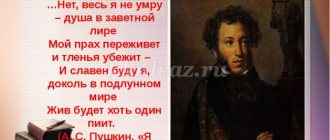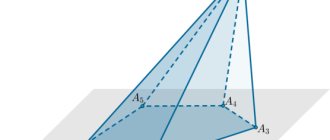Through the pages of textbooks with Vera Alexandrovna Melnikova
Textbook. Social science. 8th grade. L.N. Bogolyubov, N.F. Vinogradova, N.I. Gorodetskaya.
Agents of socialization - factors that help the formation of personality - family, peers, peers, friends and acquaintances;
they also include the school, army, state, church, media, political parties and public organizations that help a person learn the norms of lawful and socially approved behavior. A joint stock company is a business organization created on the basis of pooling the funds of participants through the issue and sale of shares.
A share is a security indicating a share in the share capital of a company, confirming the right to participate in the management of the company and receive dividends.
Alcoholism is a chronic disease caused by the systematic consumption of alcoholic beverages, leading to physical, mental, and social degradation of the individual.
Opportunity cost is the cost of loss that a consumer is willing to bear in order to gain the opportunity to acquire the desired good.
A bank loan is a sum of money issued by a bank for a certain period on the terms of repayment and payment of a certain percentage.
Unemployment is a socio-economic situation in which part of the working-age population who wants to work cannot find work.
The unemployed are able-bodied citizens who do not have a job or stable income, are registered with the employment service in order to find a suitable job and are ready to start it.
Biological and social in man are two sides of human essence. The first is natural, bodily, living in a person, associated with his body. The second is the properties and qualities of a person that are formed and manifested in society.
Benefits - everything that is useful for a person is valued by him as a means of satisfying his needs.
Currency is a monetary unit of a country that is in circulation within the country.
Exchange rate is the price of one country's currency expressed in another country's currency.
Foreign trade policy is government policy that influences foreign trade through taxes, subsidies, and direct restrictions on imports and exports.
Globalization is a stage of planetary development characterized by increasing mutual influence of countries and peoples.
Global problems are problems that affect the interests of all states and peoples of the world, living and future generations, requiring the united efforts of all countries to be solved.
The state budget is the financial plan of the state, reflecting its income and expenses for a certain period.
Public debt is the amount of debt the state owes to external and internal creditors.
Citizenship is a moral value that expresses a person’s political and legal status, as well as his moral obligation towards the Fatherland.
Humanism is humanity, recognition of the dignity and self-worth of the individual, his freedom and right to happiness and at the same time the obligation to observe them.
The state budget deficit is the excess of a country's government expenditures over government revenues.
The spiritual sphere of life of society (spiritual life of society) is a sphere that includes language, morality, law, religion, education, science, art, philosophy, i.e. spiritual culture in its various manifestations and organizations, as well as the creative activity of people.
Life values and guidelines are values that a person recognizes as important and significant for building the prospects of his own life and relationships with other people, society, and the state.
Employment is an activity of citizens that does not contradict the law and, as a rule, generates income.
An individual (from the Latin individuum - indivisible, individual) is a separate representative of the human race.
An individual private (single-person) enterprise is an enterprise owned by a citizen on the basis of private property rights.
Inflation is the process of depreciation of money, which manifests itself in the form of rising prices for goods and services.
A command economy is an economic system in which the main economic decisions are made by the state, which acts as the organizer of the economic activities of society.
The competitiveness of a product is the ability of a product to withstand comparison with similar products from other manufacturers and, therefore, be sold at prices not lower than the market average.
Competition is rivalry between participants in economic activity for the most favorable terms of purchase and sale on the market.
Credit is the provision of money or goods on credit for a certain period, usually with the payment of interest and on the terms of repayment.
Personality is a person as a social being with his inherent traits and relationships, manifested in interaction with people, society, and the state.
A small enterprise is an enterprise of any form of ownership, characterized by a limited number of employees and a small volume of output.
International trade is a set of trade relations and foreign trade relations between states trading with each other.
The international division of labor is the specialization of individual countries in the production of certain types of products that these countries exchange.
Minimum wage (minimum wage) is a legally established minimum wage for an employee.
The world economy is interconnected and interacting economies of different states, functioning according to agreed rules.
Worldview is a system of views on the world, on a person’s place in it and on the meaning of his life and activities.
Morality is special spiritual rules that regulate human behavior, his attitude towards other people, towards the environment and towards himself from the standpoint of good and evil, justice and injustice.
Tax is a mandatory payment levied by the state from each producer of goods and services, owner of this or that property and other recipients of income.
Drug addiction is a painful, often irresistible attraction to drugs, leading to profound depletion of a person’s mental and physical strength and the destruction of his personality.
Science is a sphere of human spiritual activity aimed at obtaining reliable knowledge about the world and people in it.
Continuing education is an educational process that covers a person’s entire life from childhood to old age.
Nominal income is the amount of money received by a citizen or family as a whole over a certain period of time.
Education is the process of acquiring knowledge about the world, familiarizing with culture and the values of human society.
Public goods are goods and services provided by the government to its citizens on an equal basis.
Social relations are relatively stable connections between individuals, large and small groups, ethnic groups and other associations of people in all spheres of human activity.
Society is a set of ways of interaction and forms of unification of people, which express their comprehensive interdependence.
Limited resources are the insufficiency of the resources available to people to produce goods that can satisfy the growing needs of man and society.
Responsibility is the ability to act consciously, to always understand how your actions will affect others, to foresee the possible consequences of each step you take.
Deviant behavior is behavior that does not conform to social norms.
An economic sector is a set of enterprises, institutions, organizations that produce homogeneous products or services.
Patriotism is a moral value that expresses a feeling of love for the Fatherland, concern for its interests and readiness to defend it from enemies.
Income tax is a mandatory payment levied by the state on the income of individuals and legal entities.
Needs - the need for something necessary to maintain the life and development of an individual, a group of people and society as a whole.
Property rights are a set of legal norms that establish, regulate and protect the ownership of material goods by specific people and economic organizations.
Supply is the desire and ability of the manufacturer to sell a specific product at a specific time and place.
Entrepreneurship is an independent, initiative activity of people, carried out at their own risk, under their own responsibility and aimed at making a profit.
Profit is the excess of income from the sale of goods and services over the costs of production and sale of these goods.
The cost of living is the cost of the minimum means necessary to maintain human life.
Labor productivity is the number of goods and services produced per unit of production resources consumed.
Production is the process of creating economic goods (goods and services) to satisfy people's needs.
Equilibrium price is the price at which a real purchase and sale transaction (agreement) is concluded on the market.
Division of labor is the division of the production process into a number of separate operations, stages, performed by different manufacturers.
Religion is a set of spiritual ideas based on belief in the existence of God or gods, supernatural forces, as well as corresponding behavior and specific actions.
Market - 1) a place for buying and selling goods and services; 2) a set of economic relations manifested in the spheres of production, distribution, exchange and consumption of goods and services.
A market economy is a way of organizing economic life, based on a variety of forms of ownership, entrepreneurship and competition, and free pricing.
Market equilibrium is a situation in the market when the seller can and wants to sell exactly as much goods and at the same price as the buyer wants and can buy for that price.
Freedom is the opportunity and ability to make conscious choices, act at your own discretion and bear full responsibility for the consequences of your actions.
Freedom of conscience is a person’s right to independently form their beliefs and express them openly, without harming the freedom of other people and society as a whole.
A mixed economy is a modern economy in which both the market and the state play an active role in solving basic economic issues.
The meaning of life is philosophical reflections on the purpose, purpose, content and direction of life, one’s place in the world.
Property is the ownership of material, spiritual values, and funds to certain persons—the owners; the legal right to such ownership, to ownership, use and disposal of the property.
Conscience is the internal self-control of how we fulfill our moral duty.
Socialization is the process of personality formation.
Social mobility is a change in the position of a person or group in society, a transition from one social position to another.
Social structure is a set of stable connections between people occupying certain statuses and between social groups.
Social norms are recognized rules, patterns of behavior or actions of individuals and social groups.
Social status is a person’s position in society or a group, which gives him certain rights and responsibilities.
Specialization is the concentration of activities in relatively narrow areas, production operations or types of products.
Demand is the consumer’s desire to buy a specific product, supported by the ability to pay for the purchase.
A status set is a set of all statuses occupied by a given person.
Insurance is an economic relationship that includes the formation of a special fund of funds to compensate for various types of losses and damage caused by adverse events through the payment of insurance amounts.
Subsidy is assistance in cash or in kind provided by the state to citizens and business organizations, local authorities, and other states.
A product is a product of labor produced for sale.
Partnership is an association of two or more persons to organize and jointly conduct a business.
A traditional economy is an economic system in which customs and traditions determine the practice of using scarce resources.
Services are economic activities that satisfy the personal needs of the population and society as a whole.
Factors of production are the main resources used in the production process.
Economy is an economy used by people to ensure life, satisfy needs by creating the necessary goods, conditions and means of subsistence.
Economic freedom is an opportunity for participants in economic activity to choose forms of ownership and areas of application of their abilities, knowledge, methods of consuming goods and distributing income.
An economic system is a set of organizational methods for coordinating the economic activities of people to solve the main issues of the economy.
Economic goods are means of satisfying human needs that are available to society in limited quantities.
An ethnic group is a community whose members have stable cultural characteristics (including language) that unite them and are aware of their differences from other similar communities.



